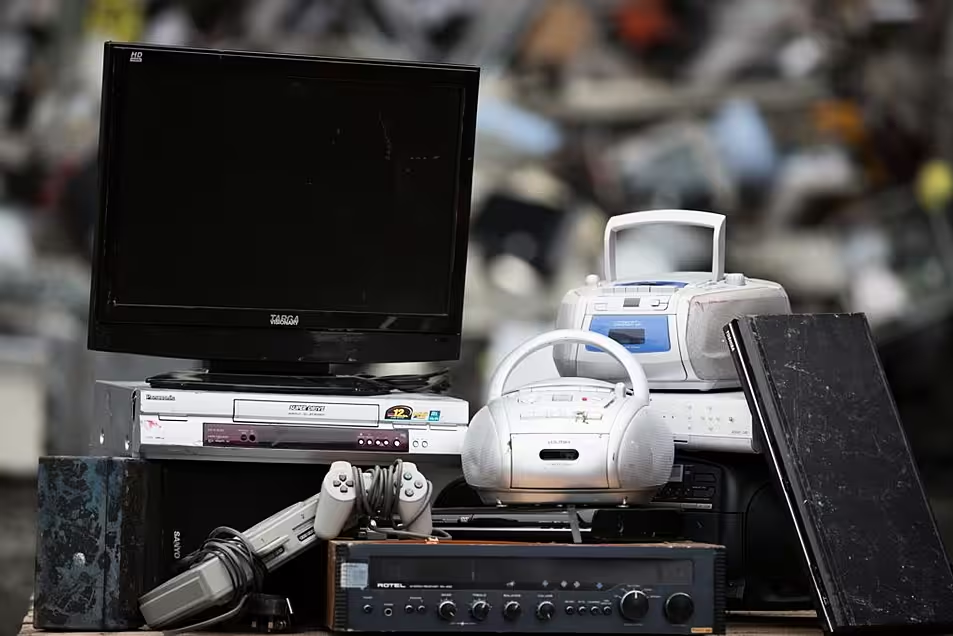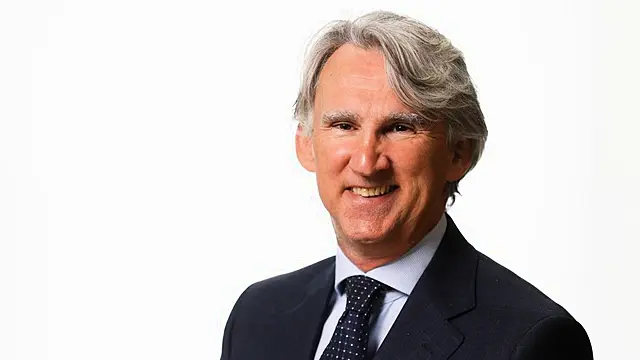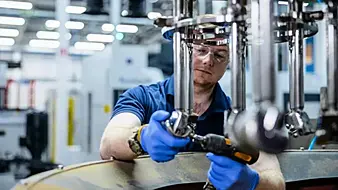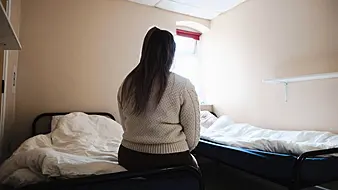What is WEEE Ireland?
WEEE (Waste, Electrical and Electronic Equipment) Ireland is a not-for-profit organisation, founded by producers of electrical and electronic appliances to help them comply with their Extended Producer Responsibilities (EPR) and European directives.
We manage the collection of household e-waste, lighting and solar PV equipment and batteries from authorised collection points for recycling and recovery, on behalf of over 1,300 industry members.
Our objective is to provide cost-effective quality compliance for producers to meet the requirements of the regulations whilst minimising the cost to the consumer.
The organisation is at the forefront of monitoring the number of e-products being placed on the market in this State - and fiercely seeking solutions to deal with them once they are no longer fit for purpose.
We are at the frontline in ensuring that the valuable raw materials used in their production can be recycled, re-used, given a new lease of life - or disposed of properly at end-of-life stage.
We have diverted millions of pieces of e-waste from landfill, supporting indigenous Irish recycling facilities and their downstream European partners to recover 83 per cent of the material contained in this resource stream.
We work with a network of electrical retailers, Local Authority Civic Amenity Sites, and our own public collection events to support members of the public to take back their old and broken appliances, devices, and waste batteries for proper environmental management.
From your research, how does Ireland perform in terms of recycling rates?
It is a major source of pride that we have evolved to become one of the best performing recycling schemes in Europe, with a record 18.7 million waste electrical items collected in 2021.
In real terms, that included the recovery of 127,000 fridges and 205,000 TVs and monitors, as well as over 2.3 million lightbulbs in a total takeback of 38,464 tonnes – 57 per cent of the average goods sold over a three-year period.
The equivalent of over 54 million used AA portable batteries were also prevented from ending up in landfill.
Some 83 per cent of all material that WEEE Ireland collects is recovered for use again in manufacturing through both indigenous operators and specialist processors in Europe.
That is a highly impressive return – but as we consume and buy more electrical appliances and devices, the recycling targets we must meet also increases to meet annual EU WEEE Directive targets, so it is more important than ever to recycle all e-waste and ensure its diversion from landfill.
Image & Caption: Most end-of-life products contain metals and minerals in higher concentrations than primary resources.

Why should I recycle my electronic household waste and what are the benefits of doing this?
International data shows that 8 per cent of all e-waste is thrown in general waste bins, which is subsequently landfilled or incinerated. This means the important raw materials they contain cannot be extracted and are lost forever.
In Europe, up to 1.4 kg of e-waste per inhabitant ends up in the general waste bin annually. On top of this, small appliances are easily stored in cupboards, garages, basements and attics and are quickly forgotten about.
In an average European household, up to 5kg of e-devices per person are hoarded in this way.
To mark International E-Waste Day this month, we want to remind people of the importance of every single piece of e-waste that is forgotten about in household drawers around the world.
These devices offer many important resources that can be used in the production of new electronic devices or other equipment, such as wind turbines, electric car batteries or solar panels – all crucial for the green transition and enabling carbon free societies.

What are the main tips for e-waste recycling and how does one get involved?
If you are replacing a truly end-of-life electrical product, make sure to buy better, buy wise. Check before purchase about free e-waste recycling take back.
If you are in the market for a new model, research information on eco-design features like improved water and/or energy consumption, repairability and additional warranties to extend the life of your appliance.
If replacing an old or broken but working item for a newer model – can the item be repaired, reused or regifted?
When you buy electrics in-store or online, you are entitled to free recycling on a one-for-one, like-for-like basis, including on delivery. This includes the batteries which go with your appliance.
Recycle used batteries for free where you see blue battery boxes, and where batteries are sold – newsagents and supermarkets.
What items can I typically recycle?
Anything with a plug, battery or circuit board can be recycled and contain a multitude of resources which can be used again in manufacturing, when properly recovered through authorised recycling and take back programmes
Unfortunately thousands of small items like as mobile phones, electric toothbrushes, toasters and cameras are often discarded incorrectly and end up in waste bins where their precious raw materials are lost forever.
How do I recycle my items? (What is the process for an individual to recycle these goods)
If your electrical items cannot be repaired, re-used or re-gifted, and have reached their end of use, they can be recycled for free in the authorised WEEE System to ensure their parts can be recovered for further manufacturing.
Once a consumer brings an end-of-life washing machine, microwave, e-scooter or hairdryer to a local authority recycling centre or participating retailer, the products are sent to certified specialist Irish and European recycling facilities for processing, where modern technologies are used to break down the appliances and harvest the raw materials that went into them - including glass, plastic and precious metals like gold and copper.
Substances of concern like mercury and lead are handled responsibly to protect both the environment and the health and safety of the employees handling them. The recovered materials are then available to put back into manufacturing and can be used to make new products, as part of a more sustainable and circular economy.
WEEE Ireland collection days across Ireland also provide great opportunities to give waste electrical and electronic equipment a new lease of life.
In what locations can I recycle my household electrical items?
A list of hundreds of drop-off points around the country can be found here: https://www.weeeireland.ie/household-recycling/where-can-i-recycle/
Can you tell us a little about International E-Waste Day taking place on 14th Oct this year?
International E-Waste Day is a movement embraced by nearly 200 organisations from over 50 countries worldwide.
WEEE Ireland is urging everyone in Ireland to take on the e-waste challenge by de-cluttering their homes of end-of-life electricals, batteries and bulbs and bringing them for free recycling to their nearest Local Authority recycling centre or participating electrical retailer.
If we are buying more electronics, we need to adopt a one plug in, one plug out mantra as we do not have enough raw materials in the ground to keep up with growing global demand.
These stock of resources are the urban mines of the future, so our recycling efforts can have a significant impact on the environment today.
The rallying call from International E-Waste Day is that it is never too late to undertake that long-promised clear-out of unused electrical items, so their vital components can be used again.
The message is simple and enduring: recycle it all, no matter how small.








